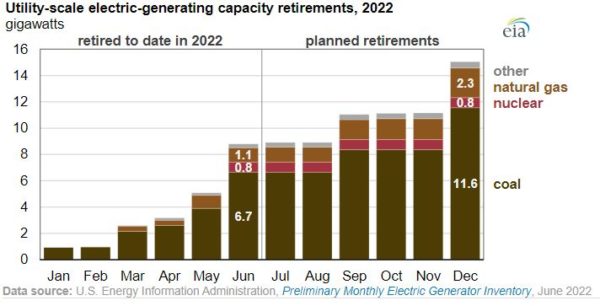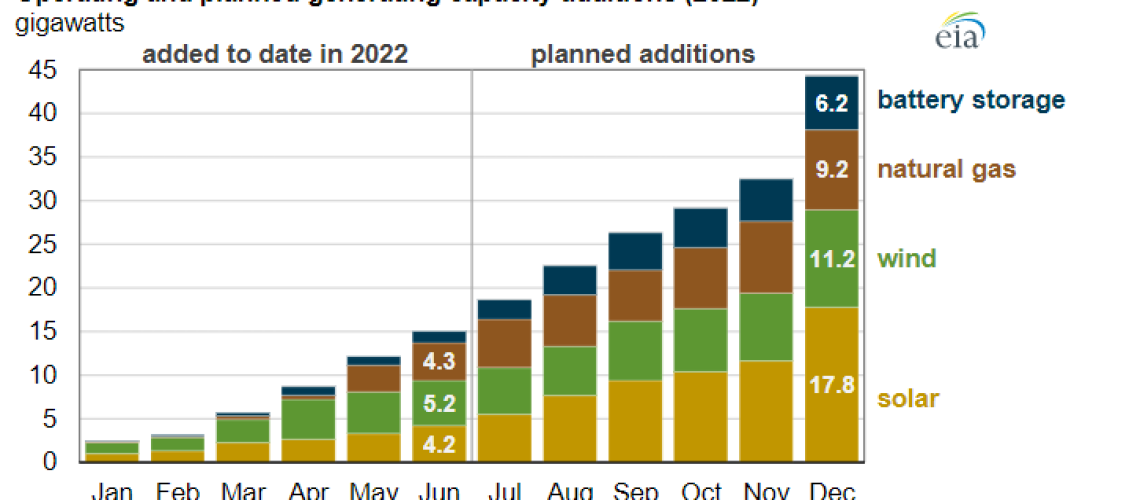EIA expects 17.8 GW of solar capacity to be added to the grid by the end of the year.
The Energy Information Administration (EIA) reports that the United States added 15 GW of generating capacity in the first six months of 2022. The top three technologies were wind (5.2 GW), natural gas (4.3 GW), and solar (4.2 GW), followed by battery energy storage.
By the end of the year, based on “high probability additions” as tracked by EIA, the year is expected to end with solar taking the largest share with 17.8 GW, followed by wind with 11.2 GW, natural gas with 9.2 GW, and battery energy storage reaching 6.2 GW of capacity. This means developers may be busy in the second half of this year, adding 29 GW to the grid nationwide.
More than 40% of the wind capacity that has been activated this year is in Texas, where 2.2 GW of wind was brought online. The largest projects installed and activated this year through six months include the 999 MW Traverse Wind Project in Oklahoma, the 492 MW Maverick Creek Wind in Texas, and the 440 MW solar and battery storage project at Slate Hybrid in California.
The EIA also tracks operable projects larger than 1 MW in size. Nationwide, there are 497 active natural gas plants, 202 coal plants, 138 wind facilities, 95 nuclear plants, 80 conventional hydroelectric dams, and 66 utility-scale solar facilities. New renewable energy projects coming online and retirements in coal fired plants, as well as natural gas and nuclear, are expected to shift these numbers.
A significant amount of capacity, 15.1 GW, is expected to be retired this year. About 8.8 GW of capacity has already been taken offline in 2022. Coal plants, due to their heavy carbon emissions, have represented the largest portion of retirements, and will account for about 76% of all retirements for the year. This is followed by natural gas (12%) and nuclear (9%). A 1.3 GW coal plant was retired in Ohio this may, and a 1.2 GW station in Maryland retired in June. Additionally, a 769 MW nuclear plant was retired in Michigan this June.




